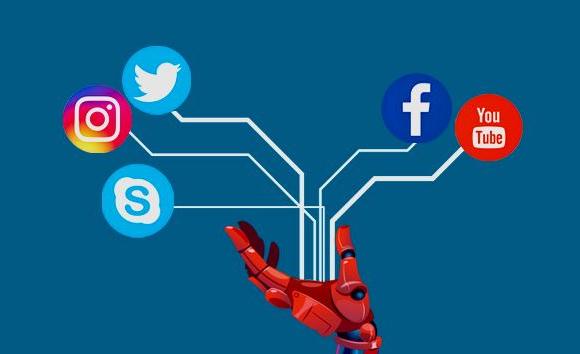Artificial Intelligence (AI) is a discipline in the field of computer science that aims to create systems and machines capable of performing tasks that typically require human intelligence. These systems are designed to learn from past experiences, adapt to their surroundings, process complex information, draw conclusions and make autonomous decisions or, more correctly, emulate some of the human cognitive abilities, such as reasoning, learning, sensory perception, natural language processing and the ability to problem solving.
The increasingly widespread use of Artificial Intelligence applied to the world of social Network has led in a very short time to many advantages, such as the customization of the content and the significant increase in efficiency in data analysis. However, the AI it also carries a number of significant risks which can threaten the privacy of users, promote misinformation, amplify social divisions, and foster impersonation.
Indeed, Artificial Intelligence has revolutionized the way we all interact on platforms social Network inevitably influencing our daily digital experience. Its introduction has allowed these platforms to deliver highly personalized content, anticipating user preferences and improving the relevance of messages.
But is it only positive innovation?
The growing use of AI in social Network it is accompanied by a series of non-indifferent risks which must be carefully considered, above all in relation to the type of user involved.
Artificial Intelligence "engines" require the collection of vast amounts of personal data to power their learning algorithms, raising serious questions about the privacy of end users and responsible management of sensitive information. Vulnerabilities in data protection practices could lead to security holes, breaches and abuses, putting user safety at risk.
Furthermore, it allows extreme customization of the contents shown to users, aiming to stimulate their involvement and keep them for as long as possible on the platforms. This can lead to a manipulation of user behavior, leading to an ever greater dependence on social Network. The rush for attention can have negative mental health consequences, causing anxiety, depression and feelings of inadequacy.
In addition, such innovation can be used to disseminate false notices and manipulative contents, exploiting the filtering mechanisms of the platforms. Recommendation algorithms, which seek to maximize the dynamics of interaction, can amplify the reach of misleading or biased information, fueling information bubbles and social divisions. They can inherit the biases present in the training data, leading to discriminatory systems that perpetuate social inequalities and injustices while simultaneously favoring racial, gender or other types of discrimination in the treatment of users and in the distribution of content.
But the darker notes, especially in consideration of the age group of users most present on the platforms Social is between 16 and 24 years old (for more than two and a half hours a day) are represented by the risk of impersonating users. Artificial Intelligence can be used to create account false and impersonate real users, attractive in a perfectly fitting way to the needs of one or more individuals, allowing the dissemination of harmful content, the "consenting" appropriation of personal data, defamation and disclosure of sensitive information, facilitating and accelerating the proliferation disinformation and making it more difficult to detect and combat harmful behavior.
In summary, the use of Artificial Intelligence offers countless opportunities, but it is important to carefully understand and manage the associated risks. The platforms of Social Media, regulators and civil society must work together to develop effective solutions that protect the privacy of users, counter the spread of disinformation and manipulative content, and ensure an environment online safe and responsible.
It is essential to adopt technological, legal and social mitigation strategies, including the implementation of transparency systems and accountability for algorithms, promoting diversity in AI design, and increasing user education about the responsible use of Social Media. And last but not least, more efforts are needed to develop ethical algorithms, transparent and accountable that are able to balance the benefit of users with the protection of society as a whole.
A holistic approach, based on awareness and collaboration, will ensure the maximization of the benefits of AI in modern society, accompanied by timely mitigation of the negative effects on our digital and social life.












